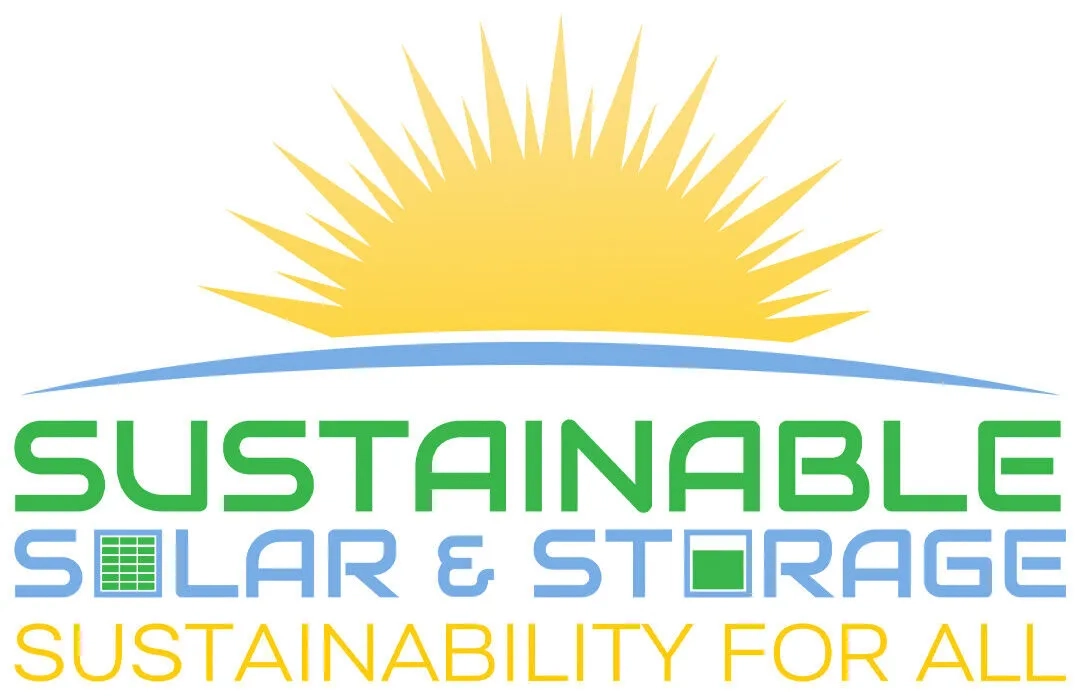Benefits of Solar Energy
Solar energy offers numerous advantages that will enhance your home for years to come.
- Reduced carbon footprint: Solar is one of the universe's most abundant clean energy sources, meaning you can lower or beat your home's dependence on "traditional" sources.
- Lowered energy bills: You can avoid the premium cost of grid-tied power by generating some electricity right where you use it. Plus, many states provide net metering which can allow you to sell your unused energy back for credits on your bill.
- Better energy independence: Adding a battery backup or storage system lets you have dependable energy during storms and grid outages.
What Solar Incentives Are Available to Queens Homeowners?
New York homeowners who go solar could qualify for tax credits, reimbursements, rebates and special financing. Here are just a few of the local incentive programs.
Incentive Type: PACE Financing
Website: nyserda.ny.govIncentive Amount:
Locally determined
Incentive Type: Personal Tax Credit
Website: tax.ny.govIncentive Amount:
25% for solar-electric (PV) and solar-thermal systems; for third-party owned systems this is in reference to the aggregate amount owed under the contract rather than the amount owed in any single year
Incentive Type: Corporate Tax Credit
Incentive Amount:
$0.01/gallon for each percent of biodiesel
Incentive Type: Loan Program
Website: ny-sun.ny.govIncentive Amount:
Residential Customers: $1,500 - $25,000
Small Business and Not-for-Profit Organizations:
Participation Loans: up to $100,000 (at low interest rate)
On-Bill Recovery loans: $50,000 at 2%
Incentive Type: Sales Tax Incentive
Incentive Amount:
100% exemption
Incentive Type: Sales Tax Incentive
Incentive Amount:
Upon local authorization, 100% exemption from local sales tax
Incentive Type: Sales Tax Incentive
Website: tax.ny.govIncentive Amount:
100% exemption from state sales tax
Incentive Type: Property Tax Incentive
Website: tax.ny.govIncentive Amount:
Upon local adoption, 20% - 100% of real property taxes owed; varies by year and certification level
Incentive Type: Property Tax Incentive
Website: tax.ny.govIncentive Amount:
100% of the value added to the residence by the improvements
Incentive Type: Property Tax Incentive
Website: tax.ny.govIncentive Amount:
100% exemption for 15 years (unless local jurisdiction has opted out)
Incentive Type: Rebate Program
Website: ny-sun.ny.govIncentive Amount:
Incentive rates step down over time as MW goals are met. Incentive rates as of 11/27/2019 are:
Residential:
Long Island Region: $0.00/W (MW blocks have been fully subscribed)
Con Edison Region: $0.30/W
Upstate Region: $0.35/W
Low-to-Moderate income customers: $0.80/W (up to 10 kW)
Small Commercial (Non-Residential):Long Island Region: $0.00/W (MW blocks have been fully subscribed)
Con Edison Region: $0.60/W
Up State Region: $0.45/W
Multifamily Affordable Housing Adder: additional $0.40/W (up to 50 kW)
Incentive Type: Rebate Program
Website: psegliny.comIncentive Amount:
Appliances
Advanced Power Strips: $10 - $20
Air Purifier: $25 - $50
Clothes Dryer: $50 - $250
Clothes Washer: $50
Dehumidifier: $30
Dishwasher: $50
Exhaust Fan: $20 - $25
Electric Freezer: $30
Heat Pump Water Heater: $650
Pool Pumps: $150 - $350
Refrigerator: $50
Refrigerator Recycling: $50
Lighting
Instant Rebates Vary by Product
Bulk Light Purchases: Up to $2 - $3/unit
Cooling & Heating
Central Air Conditioning: $450
Smart Thermostat: $85
Ground Source Heat Pump: $2,000/ton
Incentive Type: Rebate Program
Website: nyserda.ny.govIncentive Amount:
Small Systems (≤ 10 cooling tons): $1,500/cooling ton
Large Systems (> 10 cooling tons): $1,200/cooling ton
Incentive Type: Loan Program
Website: nyserda.ny.govIncentive Type: Other Incentive
Website: greenbank.ny.govIncentive Type: Personal Tax Credit
Website: tax.ny.govIncentive Amount:
$0.01/gallon for each percent of biodiesel
Incentive Type: Rebate Program
Website: nyserda.ny.govIncentive Amount:
Tier I: 10,000 kWh of expected annual energy production: $3.50/annual kWh
Tier II: 10,000 kWh - 125,000 kWh of expected annual energy production: $1.00/annual kWh
Tier III: 125,000 kWh - 1,000,000 kWh of expected annual energy production: $0.30/ annual kWh
Tier IV: Greater than 1,000,000 kWh of expected annual energy production: $0.15/ annual kWh
These incentives are additive.
Incentive Type: Performance-Based Incentive
Website: nyserda.ny.govIncentive Amount:
- Capacity Incentive: Varies on the construction and design of the system
- Performance Incentive: $0.025/kWh production payment for new systems for up to 10 years (estimated using a capacity factor of 75%)
- Interconnection Incentive: up to 75% of the costs exceeding $5,000
- Project Enhancement Incentives: Available for Black Start Capability, Hydrogen Sulfide reduction, design for accepting food waste and others
Incentive Type: Personal Tax Credit
Website: ecowatch.comIncentive Amount:
30% federal tax credit for systems placed in service after 12/31/2021 and before 01/01/2033. Good for: solar water heat, solar photovoltaics, biomass, geothermal heat pumps, wind (small), fuel cells using renewable fuels.
How To Choose the Best Solar Company in Queens
The purchase price and performance of solar panels often depend on the solar company that mounted them. Consider all of these factors in your service provider search.
Licensing and Training
New York regulators do not issue licenses to contractors, so you should check with your county or city government for its specific regulations and requirements. Solar providers can also earn certifications from standards organizations and trade groups. The top ones in the industry come from the NABCEP. Most company websites will prominently display earned credentials, but you should also ask your estimator for more information.
Cost of Solar Panels in Queens
Different solar panel types look and perform differently. Monocrystalline panels offer the best energy production but cost more than other options and generally have the highest quality. Polycrystalline panels produce less power, but start at a more budget-friendly price point. Thin-film panels work well for small projects like RVs and sheds, but they're not ideal for larger installations due to their low performance.
If you'd like to charge an electric car or use your solar power in cloudy weather, you can pay extra for add-ons. By selecting the right components, you can make your panel array more efficient and convenient to use. Not every solar provider offers these additional features, so look for a contractor that sells them if it's important for you.
Most Queens homeowners choose solar systems designed for five kilowatts (kW) of electrical capacity. These systems cost about $18,250 to set up, considering both parts and installation. You can see more specific solar cost information in the table.
| Solar Panel Cost | Average Cost |
|---|---|
| Solar Monocrystalline | $1,220 |
| Solar Polycrystalline | $952 |
| Thin-Film | $556 |
| Solar Battery | $781 |
| Solar Home EV Charger | $2,928 |
Financing Solar Energy in Queens
There are a plethora of ways to pay for new solar panels, and the right one will reduce your expenses. A few of the most common options include cash payments, power purchase agreements (PPAs), leases, and loans. We advise making a cash payment or using a solar loan for the highest return on investment (ROI). Cash payments require a hefty sum up-front, but you’ll pay the least long-term by avoiding interest. You’ll also own your system and can apply for solar panel incentives to cut your total costs. Solar loans are another good option if you don’t want to make a big initial investment. You can pay for your system in monthly installments while still enjoying energy bill savings and solar incentives. However, you’ll spend more in total due to accruing interest. Solar leases allow you to pay a monthly fee to rent your panels, while a PPA lets you pay a fluctuating rate based on only the energy you use. We generally advise against these options since you won't own your system and are disqualified from solar incentives, but they might be appropriate in certain circumstances. Look for installers that offer multiple payment plans to find the right fit for your pocket.
The table below lists the average payback periods for different capacities of solar systems in Queens.
You are eligible for a 26% federal solar tax credit for new solar energy devices until the year 2032. Local and state governments and utility companies might also offer rebates, discounts, and dedicated financing plans that could save you more.
| Solar System Capacity | Estimated Payback period |
|---|---|
| 1 kW | 2.6 years |
| 2 kW | 5.1 years |
| 5 kW | 12.9 years |
| 10 kW | 25.7 years |
Ready to Get a Quote on Your Solar Project?
Please enter a valid 5-digit zip code!
Frequently Asked Questions About Solar in Queens
How much money could I save by going solar in Queens?
How prevalent is solar energy in Queens?
Should I expect a boost in my property value after adopting solar power?
What is a Queens solar panel's average lifespan?
How long does the solar installation process last?
What's the average solar system size in Queens?
How can I boost my solar panels' performance?
- optimize the panels' position with your solar installer
- regularly clean your solar panels
- upgrade to a more efficient inverter trim or cut down trees in the way of your panels
- use energy-efficient appliances
How are a solar lease and PPA different?
If you choose a lease, you'll make set payments each month.
With both leases and PPAs, you don't own your panels and lose eligibility for most incentives. Further, you'll have to "buy out" or transfer the contract if you sell your home during the term.
To share feedback or ask a question about this article, send a note to our Reviews Team at reviewsteam@thisoldhousereviews.com.

















